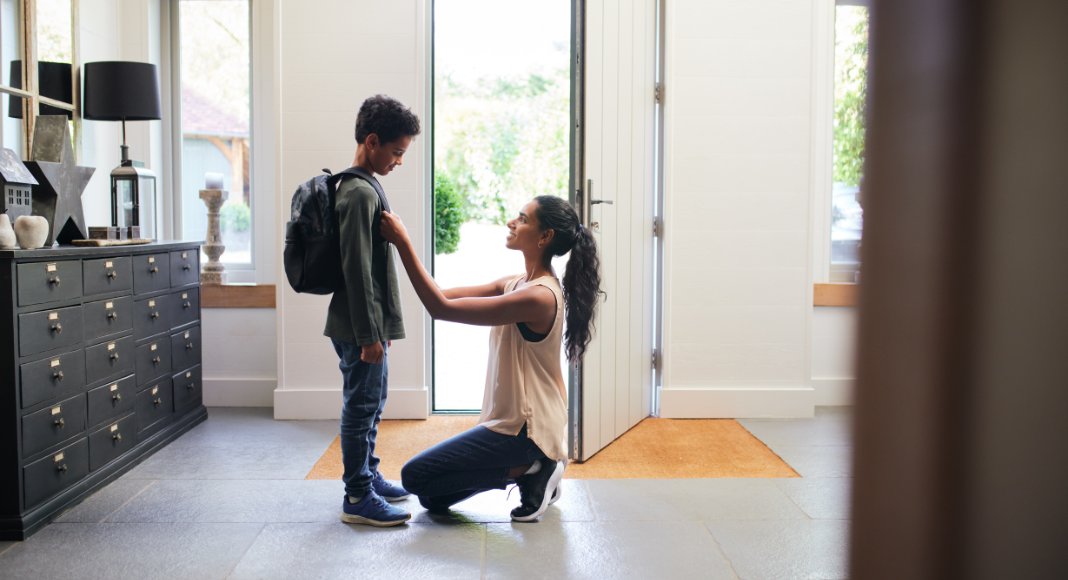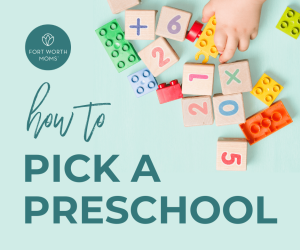There are several ways to show gratitude toward the teachers in your kiddo’s lives, and it’s not necessarily through gifts. We can’t always shower them with gift cards, presents, or office supplies. But a little encouragement can go a long way!
I have had the privilege of teaching both early childhood and high school. And across the board, we usually hear complaints more than positive feedback. But let me tell you something: Positive words of encouragement have carried me through my most difficult days.
Pick one or all of these ways to show appreciation toward an educator.
 1. Write Notes and Stories
1. Write Notes and Stories
Encourage your child to write (or scribble) a note and to bring it to the teacher. If your kiddo comes home and tells you something he or she really enjoyed from class, let that teacher know.
Maybe it’s a funny story you learned while your little one was playing teacher. Or maybe your high schooler came home and wanted to replicate an experiment. Tell the teacher!
You might think because we hear and experience this stuff all day long, we don’t want to hear about how excited your child was about a lesson. But those things are encouraging for teachers to hear.
>> RELATED READ :: Teacher Holiday Gifts <<
2. Partner with the Teacher
Checking folders and emails for notes from parents is so helpful to keep communication open between parents and the school/teacher. Yes, teachers often get an OVERLOAD of communication. We have 8,000 emails, and most of them are spam or a repeat of something we’ve already read. If the teacher doesn’t respond in a timely manner — don’t sweat it. Send a gentle follow-up because it’s likely he or she just overlooked it.
Also, please understand teachers do not make a lot of the rules. Can’t bring cupcakes in for a birthday? Can’t see a quiz after it’s submitted? Have to stay in the single file carpool line? We’re trying to keep everything running smoothly, and often the policies are set in place for a reason.
I’m not saying never to question a policy, but please do so with kindness.
3. Set Up Your Student for Success
The school day starts before school does. How kids’ mornings go impact their days, much like they do with adults. Fuel your kiddos in the morning with a solid breakfast. Send a protein snack. Have a moment of positive connection with them. Set them up for success before the day starts.
When the school day is over, ask questions besides: How was your day? Instead, ask: What made you smile today? Here’s a list of question suggestions.
Have an after school routine set up that you stick to, when you can, as far as homework is concerned. (A solid snack helps with the after-school grumps.)
As parents, we want to help remind our children of things and also set them up to be more independent. It’s a hard balance. We want to teach life skills that they will need and will benefit from at school, such as gross motor and communication skills.
For example, in kinder, a student should be able to open everything you send in his or her lunchbox independently. In high school, if there’s an issue with a lesson or assignment, he or she should be able to send an email independently (even if you are cc’d).
 4. Believe the Teacher
4. Believe the Teacher
One of my notes at the beginning of the year is the “more than half” rule. When a child tells me something, I’ll believe a little more than half of what he or she tells me at face value.
I’m not asking you to not believe your kids, but understand that your little one is at a different level of communication. From toddlers to high schoolers, a lot of time he or she is just trying to join in and be a part of conversations in an adult way. Stories may be exaggerated or fictitious, just to sound more adult.
For example, some kindergartners often do not know how to separate fact from fiction. I had a kinder kiddo come in and tell me he didn’t eat dinner anymore (obviously concerning, right?) So, I asked mom about it, and she was mortified that this little one’s story came out like that. They had gotten rid of their dinner table and were eating “supper” at the kitchen counter now, but they were still eating dinner.
Last semester, a high schooler told me that she had tried everything she could to submit an assignment. She had tried a couple of things and wasn’t trying to lie. But she needed help figuring out what to do next and didn’t want to look bad.
Maybe you have not witnessed a certain behavior at home (kids act a lot differently at school!) or aren’t sure if your child’s story is true. Try communicating with the teacher about it. And please do so in a kind way.
>> RELATED READ :: Effective Communication Tips with School :: 5 Tips from a Former Teacher <<
5. Say Thank You. A Lot.
Say thank you! More than you think is necessary. Say it in the hall, in carpool, or send a short note that says thanks. Respond to email with “Got it — thanks!” Positive notes are never unwelcome. Encourage your kiddos to make a thank you note for their teachers every once in a while, too.
I would love to shower my kids’ teachers with gifts, classroom supplies, and much more. Physical gifts are not always feasible. There are a lot of ways to show gratitude to teachers for free! And teachers really need our encouragement, kind words, and support right now.













